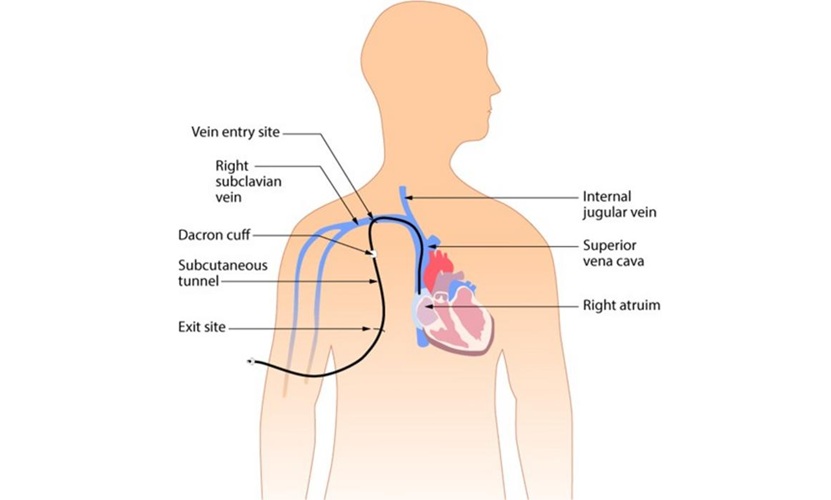Machine Learning-Enabled COVID-19 Prognostic Tool Supports Clinical Decision-Making for Emergency Department Discharge
|
By HospiMedica International staff writers Posted on 26 Jan 2022 |

Researchers who evaluated the real-time performance of a machine learning (ML)-enabled, COVID-19 prognostic tool found that it supported clinical decision-making for emergency department discharge at hospitals.
A multidisciplinary team of intensivists, hospitalists, emergency doctors, and informaticians at the University of Minnesota Medical School (Minneapolis, MN, USA) evaluated the tool which delivered clinical decision support to emergency department providers to facilitate shared decision-making with patients regarding discharge.
The University research team successfully developed and implemented a COVID-19 prediction model that performed well across gender, race and ethnicity for three different outcomes. The logistic regression algorithm created to predict severe COVID-19 performed well in the persons under investigation, although developed on a COVID-19 positive population.
A logistic regression model ML-enabled can be developed, validated, and implemented as clinical decision support across multiple hospitals while maintaining high performance in real-time validation and remaining equitable. The researchers recommend that the effect on patient outcomes and resource use needs to be evaluated and further researched with the ML model.
“COVID-19 has burdened healthcare systems from multiple different facets, and finding ways to alleviate stress is crucial,” said Dr. Monica Lupei, an assistant professor at the U of M Medical School and medical director M Health Fairview University of Minnesota Medical Center - West Bank. “Clinical decision systems through ML-enabled predictive modeling may add to patient care, reduce undue decision-making variations and optimize resource utilization — especially during a pandemic.”
Related Links:
University of Minnesota Medical School
Latest COVID-19 News
- Low-Cost System Detects SARS-CoV-2 Virus in Hospital Air Using High-Tech Bubbles
- World's First Inhalable COVID-19 Vaccine Approved in China
- COVID-19 Vaccine Patch Fights SARS-CoV-2 Variants Better than Needles
- Blood Viscosity Testing Can Predict Risk of Death in Hospitalized COVID-19 Patients
- ‘Covid Computer’ Uses AI to Detect COVID-19 from Chest CT Scans
- MRI Lung-Imaging Technique Shows Cause of Long-COVID Symptoms
- Chest CT Scans of COVID-19 Patients Could Help Distinguish Between SARS-CoV-2 Variants
- Specialized MRI Detects Lung Abnormalities in Non-Hospitalized Long COVID Patients
- AI Algorithm Identifies Hospitalized Patients at Highest Risk of Dying From COVID-19
- Sweat Sensor Detects Key Biomarkers That Provide Early Warning of COVID-19 and Flu
- Study Assesses Impact of COVID-19 on Ventilation/Perfusion Scintigraphy
- CT Imaging Study Finds Vaccination Reduces Risk of COVID-19 Associated Pulmonary Embolism
- Third Day in Hospital a ‘Tipping Point’ in Severity of COVID-19 Pneumonia
- Longer Interval Between COVID-19 Vaccines Generates Up to Nine Times as Many Antibodies
- AI Model for Monitoring COVID-19 Predicts Mortality Within First 30 Days of Admission
- AI Predicts COVID Prognosis at Near-Expert Level Based Off CT Scans
Channels
Artificial Intelligence
view channelCritical Care
view channel
AI Tool Identifies Trauma Patients Requiring Blood Transfusions Before Reaching Hospital
Severe bleeding is one of the most common and preventable causes of death after traumatic injury. However, current tools often fail to accurately identify which patients urgently require blood transfusions,... Read more
New Clinical Guidelines to Reduce Central Line-Associated Bloodstream Infection
Central venous catheters are essential in intensive care units, delivering life-saving medications, monitoring cardiovascular function, and supporting blood purification. However, their widespread use... Read moreSurgical Techniques
view channelAI-Based OCT Image Analysis Identifies High-Risk Plaques in Coronary Arteries
Lipid-rich plaques inside coronary arteries are strongly associated with heart attacks and other major cardiac events. While optical coherence tomography (OCT) provides detailed images of vessel structure... Read moreNeural Device Regrows Surrounding Skull After Brain Implantation
Placing electronic implants on the brain typically requires removing a portion of the skull, creating challenges for long-term access and safe closure. Current methods often involve temporarily replacing the skull or securing metal plates, which can lead to complications such as skin erosion and additional surgeries.... Read morePatient Care
view channel
Revolutionary Automatic IV-Line Flushing Device to Enhance Infusion Care
More than 80% of in-hospital patients receive intravenous (IV) therapy. Every dose of IV medicine delivered in a small volume (<250 mL) infusion bag should be followed by subsequent flushing to ensure... Read more
VR Training Tool Combats Contamination of Portable Medical Equipment
Healthcare-associated infections (HAIs) impact one in every 31 patients, cause nearly 100,000 deaths each year, and cost USD 28.4 billion in direct medical expenses. Notably, up to 75% of these infections... Read more
Portable Biosensor Platform to Reduce Hospital-Acquired Infections
Approximately 4 million patients in the European Union acquire healthcare-associated infections (HAIs) or nosocomial infections each year, with around 37,000 deaths directly resulting from these infections,... Read moreFirst-Of-Its-Kind Portable Germicidal Light Technology Disinfects High-Touch Clinical Surfaces in Seconds
Reducing healthcare-acquired infections (HAIs) remains a pressing issue within global healthcare systems. In the United States alone, 1.7 million patients contract HAIs annually, leading to approximately... Read moreHealth IT
view channel
EMR-Based Tool Predicts Graft Failure After Kidney Transplant
Kidney transplantation offers patients with end-stage kidney disease longer survival and better quality of life than dialysis, yet graft failure remains a major challenge. Although a successful transplant... Read more
Printable Molecule-Selective Nanoparticles Enable Mass Production of Wearable Biosensors
The future of medicine is likely to focus on the personalization of healthcare—understanding exactly what an individual requires and delivering the appropriate combination of nutrients, metabolites, and... Read moreBusiness
view channel
Medtronic to Acquire Coronary Artery Medtech Company CathWorks
Medtronic plc (Galway, Ireland) has announced that it will exercise its option to acquire CathWorks (Kfar Saba, Israel), a privately held medical device company, which aims to transform how coronary artery... Read more
Medtronic and Mindray Expand Strategic Partnership to Ambulatory Surgery Centers in the U.S.
Mindray North America and Medtronic have expanded their strategic partnership to bring integrated patient monitoring solutions to ambulatory surgery centers across the United States. The collaboration... Read more
FDA Clearance Expands Robotic Options for Minimally Invasive Heart Surgery
Cardiovascular disease remains the world’s leading cause of death, with nearly 18 million fatalities each year, and more than two million patients undergo open-heart surgery annually, most involving sternotomy.... Read more



















